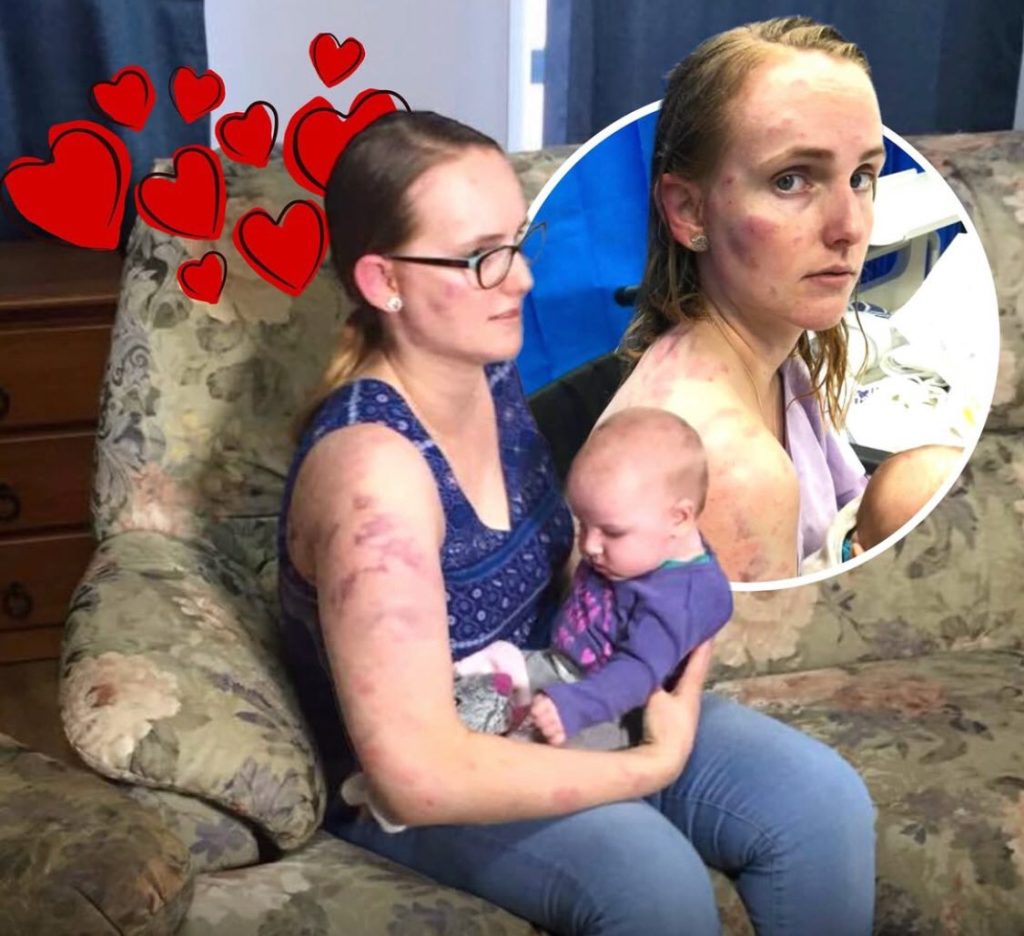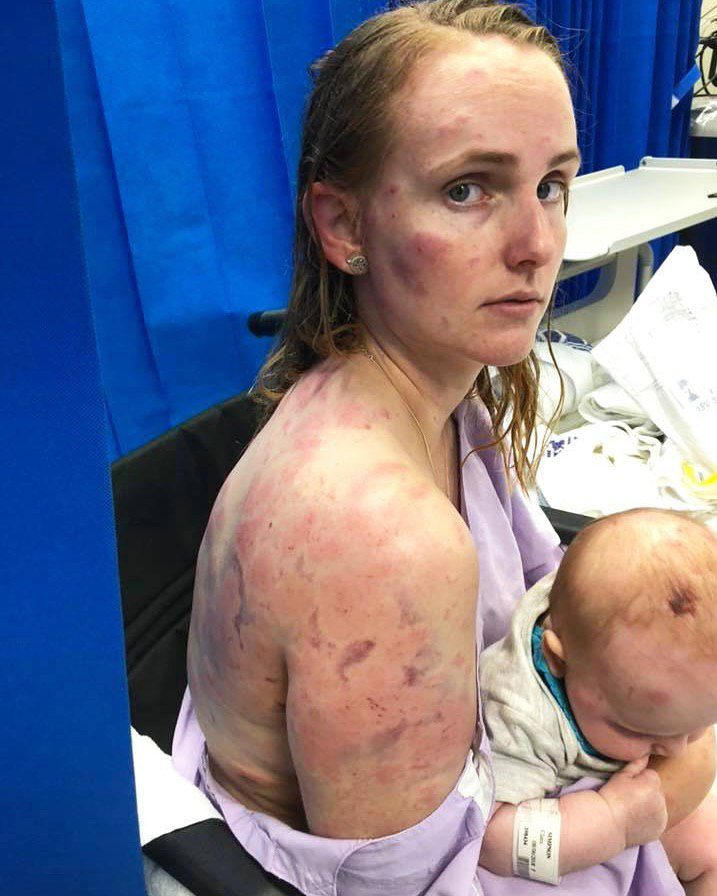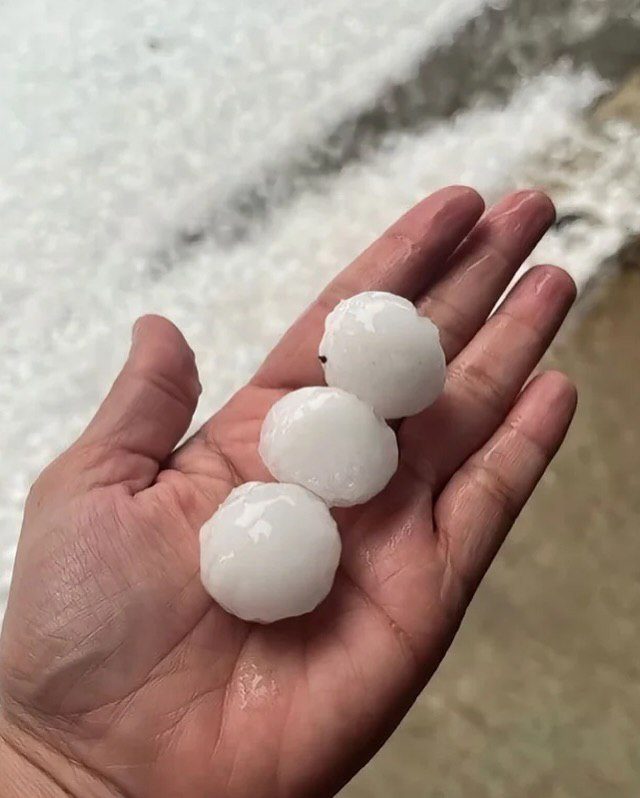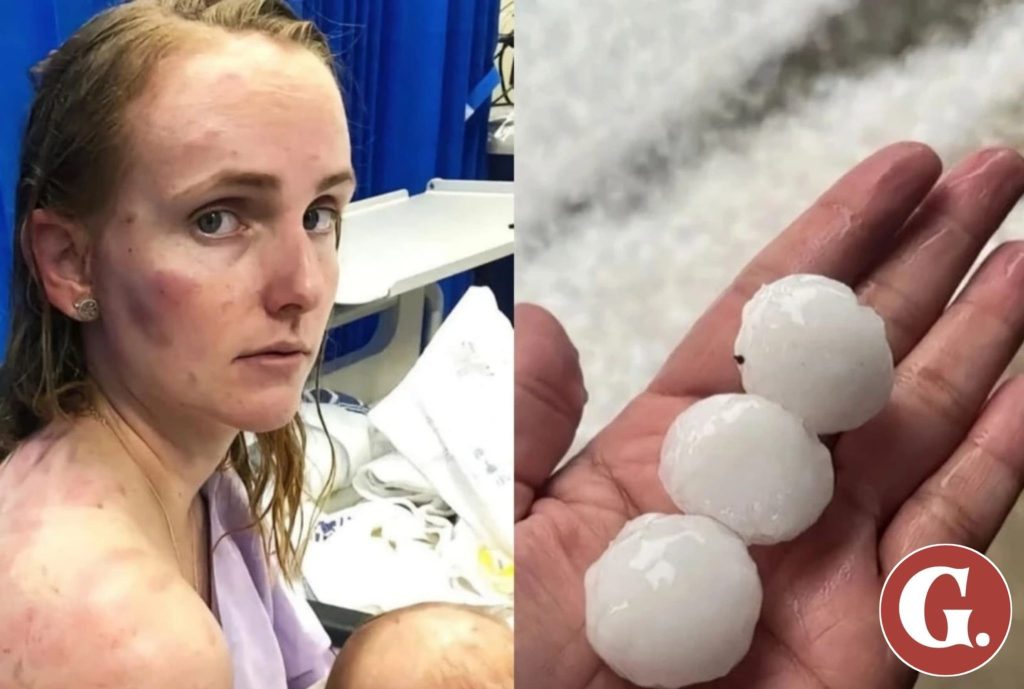Australian Mom Throws Herself Over Her Baby During Violent Hailstorm—Her Bruised Body Became a Symbol of Motherly Courage
There are moments that redefine what it means to love someone. Not with words, not with promises, but through instinct and raw sacrifice. In 2018, on a stormy afternoon in Queensland, Australia, one such moment unfolded in the most unexpected place—a family car driving through the town of Kingaroy. Fiona Simpson, a young mother out running errands with her baby daughter and grandmother, had no idea she was about to become a global symbol of bravery and maternal strength.
The skies had turned grey, heavy with an eerie stillness. A storm had been forecast, but few could predict just how severe it would be. Fiona, like most people that day, thought it would pass. But within minutes, the winds picked up and golf-ball-sized hailstones began to slam down with a terrifying force. Her car, now trapped on a rural road, was suddenly under assault. The windows shattered like brittle glass, sending sharp shards inward. Fiona’s first thought wasn’t of herself—it was of her baby in the back seat.

Without thinking, she climbed into the back and threw her body over her daughter. No hesitation. No calculation. Just pure instinct. She became a human shield, curling herself around the infant as icy stones tore through the vehicle’s interior. Her back and shoulders absorbed the impact of every blow, each one leaving behind welts, bruises, and deep, purple marks that would take weeks to fade. Her grandmother, sitting in the front, was also struck, but it was Fiona’s actions that spared the baby from even a single scratch.
After the storm passed and emergency services were finally reached, Fiona did something that surprised many—she posted photos of her injuries on Facebook. Not for sympathy. Not for drama. But to warn others about how quickly weather can turn, and to show the brutal reality of what that storm had done. Her photos went viral within hours. Strangers from around the world commented, shared, and thanked her for reminding them what bravery looks like.
The images were hard to look at—dozens of swollen, painful bruises running across her back, arms, and neck—but they carried a message that was impossible to ignore. Fiona never once described herself as a hero. “I wasn’t going to let anything happen to my daughter,” she wrote simply. “That’s what mothers do.”
The story spread far beyond Australia. News outlets across Europe, Asia, and the U.S. picked it up. Talk shows discussed it. Parenting blogs shared it as a modern-day example of maternal love in its rawest form. But while the internet was quick to celebrate her actions, the weight of that day stayed with Fiona. Physically, the pain lingered for weeks. Emotionally, the shock and fear were harder to shake.
Still, in the months that followed, she turned those feelings into something empowering. She accepted interviews not for fame, but to encourage weather safety and emergency preparedness. She continued to share her story with honesty—reminding people that she never felt “brave” in the moment. She was terrified. She didn’t feel strong. But she acted anyway.
That’s what makes her story resonate so deeply.

We often think of heroism as grand gestures—rescue missions, daring escapes, or dramatic saves. But sometimes, heroism is quiet. It’s in the milliseconds between danger and decision. It’s in the way a mother flings her body over her child without considering what it might cost. It’s in the way she walks away bruised but grateful because she knows she kept her baby safe.
In 2019, Fiona was awarded the Queensland Bravery Medal, a formal recognition of her courage and selflessness. When she received it, she did so with the same humility that had marked everything she’d done since the storm. She thanked the emergency services, praised her community, and reminded everyone that “you never know what you’re capable of until you have no choice.”

Her daughter, who was barely a toddler at the time, won’t remember the storm. She won’t remember the way her mother held her tight as the world outside exploded with ice and fury. But one day, she’ll see the photos. She’ll read the articles. She’ll know what her mother did. And she’ll understand what love means—not the kind that’s said, but the kind that’s proven when it matters most.
Fiona Simpson’s story is more than a viral headline. It’s a reminder that real strength doesn’t always roar. Sometimes, it’s a whisper, a decision made in a heartbeat, a bruise taken so someone else doesn’t have to feel the pain. It’s a quiet kind of courage—but the kind that stays with you long after the storm has passed.


